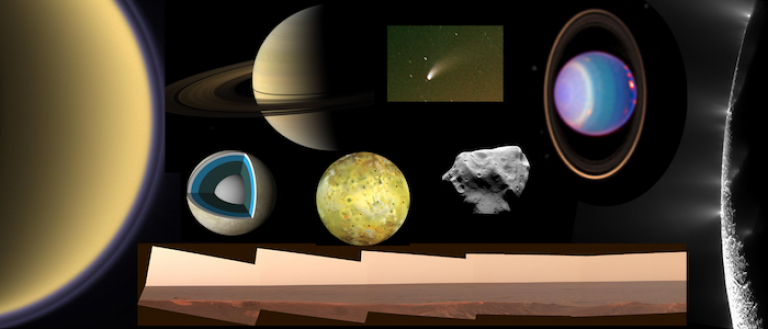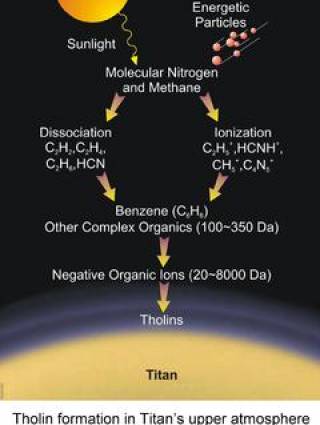Planetary science is the scientific study of planets and their planetary systems which includes moons, ring systems, gas clouds, and magnetospheres.
Planetary science is the scientific study of planets and their planetary systems which includes moons, ring systems, gas clouds, and magnetospheres. It involves understanding how planetary systems formed, how these systems work and how all their components interact. It is a cross-discipline field including aspects of astronomy, atmospheric science, geology, space physics, biology and chemistry.

What are the big scientific questions that Planetary Science tries to answer?
- How did the Solar System form?
- What are the conditions for life?
- How does the Solar System work?
- How does the Sun influence planets and planetary systems?
- How do planetary systems evolve?
How are these questions answered?
Planetary scientists use lots of different techniques involving lots of branches of science to try to answer these questions:
- Use unmanned robot spacecraft to make measurements of the planets and their planetary systems.
- Use telescopes on the ground or in space to make observations of distant planets, moons, etc..
- Carry out experimental work in laboratories or in at different sites on the Earth which replicate different planetary environments.
- Do theoretical work involving mathematical work and building models of planetary systems or their components using computers.
Example: The discovery of large organic molecules in Titan’s atmosphere

Why are these questions important?
Where did the Solar System come from? Where did life come from? These sorts of questions are some of the most profound we can ask. It is also important to study many planetary systems as that tells us more about our own planet Earth and helps us understand effects such as space weather and climate change.
 Close
Close

